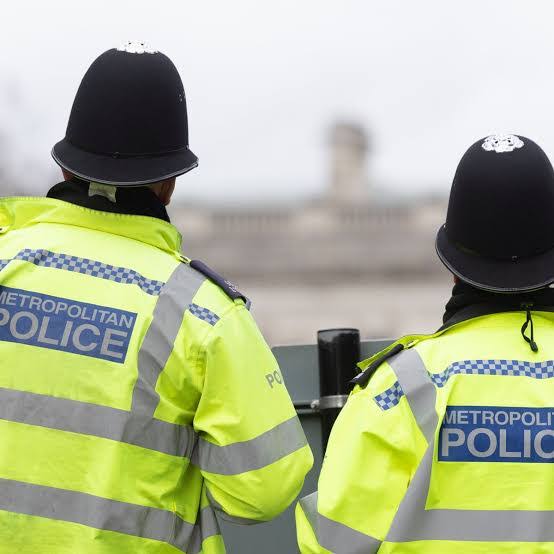A video showing a Metropolitan Police officer allegedly telling a group of Nigerian women not to call police on their husbands but to “manage it”, is now being investigated after resurfacing six years later on the social media.
The clip filmed inside Divine Restoration International Church in Camberwell in 2018 shows a police staff member addressing a group of mainly women as three officers stand beside, sparking outrage from abuse charities.
In the video, which the UK Mirror has seen, the officer can be heard speaking in Yoruba – a Nigerian language, as well as English, while he stands at a pulpit talking about knife crime and how sons ‘may not want to listen to their mothers” and instead prefer their fathers.
Shocking figures show two UK police forces don’t have a single Black male or female serving officer.
Debbie says she was livid when she saw the video
The footage goes on to show the officer allegedly saying that once Nigerian women arrive in the UK they start behaving “rudely” towards their husbands, adding that they should not call police on their husbands “but manage it.”
Police confirmed to the UK Mirror that the footage has been referred to the Met’s standards unit.
The children’s safeguarding group Africa, have expressed anger at the remarks in a letter of complaint to the Met detailing how the officer’s advice was “telling victims to stay in abusive relationships and not to seek police protection.”
Speaking to the UK Mirror, Chief Executive of Afruca, Debbie Ariyo who saw the video said: “[The officer said], ‘do not call the police on your husband, but manage it.’
The police staff member was joined by other staff who stood beside him while he addressed the women.
The officer is now being investigated
“When I heard it, I was livid. Like what do you mean? So if a man is abusing the woman, and don’t forget, domestic violence is not always about physical abuse, emotional even in terms of cultural practices, its a sexual issue – so if a woman is being abused in the home, she shouldn’t call the police because if she does, the man will be removed from the home and the children will spiral and it will be her fault.
“If a woman is being abused, you’re saying that women shouldn’t seek police protection. “That was really bad of them, that’s just like minimising these issues in our communities. That Nigerians don’t really matter. Even children are victims in the home when domestic violence is going on.”
The charity chief went on to add that she felt violence against Black women was not being highlighted, as figures from PA News agency from the Metropolitan Police show of the 21 femicide victims recorded by the force in 2022, nine victims (43%) were Black and have higher rates than any other ethnic group.
Debbie said: “We’ve been talking about violence against women but we haven’t talked about violence against Black women. Women in African and Caribbean communities.
“And so to hear a police officer who should understand the UK Domestic Violence Act of 2021, telling women that they shouldn’t call the police on their husbands, whatever the explanation is, it’s counterproductive. I felt it was an attack on Nigerian women.
“Coming from a police officer, where we see many police officers being convicted of hurting women, it’s the first thing I thought about.”
When approached by the Mirror, Detective Chief Superintendent Seb Adjei-Addoh said that the video had been referred to the professional standards team.
He said: “The incident reported relates to an informal talk by a police member of staff made at a church in Camberwell back in 2018. The comments made by the member of the police staff categorically do not represent the position of the Met in relation to domestic abuse and are wrong. There are no circumstances where it would be appropriate for a victim-survivor of domestic abuse not to report it to the police if they feel able to do so.
“Over recent years, the Met has developed a raft of dedicated investigation teams focused on domestic abuse. Within the boroughs of Lambeth and Southwark, we work in partnership with the local authorities and third-sector charities involved in VAWG to ensure we have strategies to encourage domestic abuse reporting and support victim-survivors of domestic abuse.

